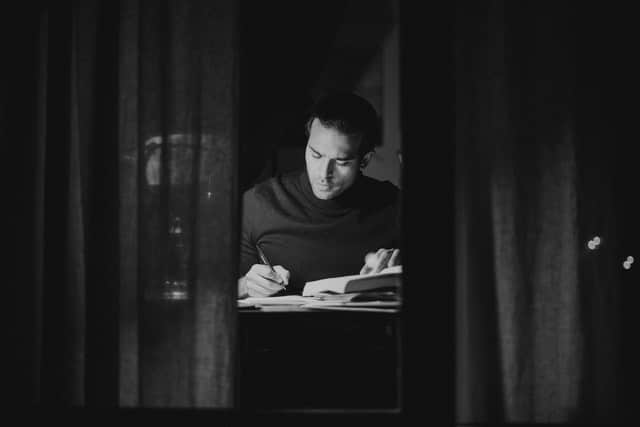
How to Choose a Nonfiction Book Format: 10 Types of Nonfiction Genres You Need to Consider
HOW TO CHOOSE A NONFICTION BOOK FORMAT: 10 TYPES OF NONFICTION GENRES YOU NEED TO CONSIDER
“I still believe nonfiction is the most important literature to come out of the second half of the 20th century.” — Tom Wolfe
In 2021, 825.75 million print books were sold in the United States, according to Statista. This figure bodes well since it represents an 8.9% year-over-year growth for the book market.
Moreover, data from NPD indicates that adult nonfiction books sold 82 million copies in the first quarter of 2021. Aspiring authors can find fertile ground in the nonfiction publishing market with such encouraging numbers.
To capitalize on these promising trends, we must home in on the various types of nonfiction genres that you can use to turn your story into a profitable literary work.
In this article, we will look at 10 nonfiction genres you need to consider for your next book. Also, we will discuss the role that a ghostwriter can play in helping you get your next book idea off the ground.
So, let’s put pen to paper!
Fiction vs. Nonfiction
When most people think about writing a book, the first thing that pops into their minds is a novel. Of course, creative fiction writing is a great way to become a published author.
However, fiction is not the only avenue you can pursue to make a name for yourself in the literary world.
As we have established, nonfiction writing is a viable path for you to make your mark on the literary world.
Suppose you aspire to become an author but are not keen on writing a novel. In that case, you should explore the domain of nonfiction genres.
There is a wide scope of styles you can use to produce meaningful and engaging content in nonfiction. Moreover, choosing the right nonfiction genre can help frame your content effectively.
So, let’s look at 10 nonfiction genres that will help you frame your ideas and content into a successful narrative.
10 Types of Nonfiction Genres You Need to Consider
1. Autobiography
An autobiography tells the author’s story in their own words. Autobiographies go through the author’s life events, usually chronologically, to paint a portrait in readers’ minds.

While autobiographies are generally chronological, you do not necessarily need to structure them in this way. You can focus on individual events and construct the narrative surrounding singular events.
Engaging autobiographies typically dispense with inconsequential details to provide only the requisite context to the story.
Then, the narrative focuses on depicting the most crucial moments in the author’s life.
If you have a penchant for creative writing, producing your autobiography is a great way to combine the best of both worlds.
An autobiography is a nonfiction book. Nevertheless, it gives you the freedom to explore creative prose as freely as possible.
2. Memoir
A memoir has many characteristics of an autobiography. The difference is that a memoir focuses mainly on individual events instead of an exhaustive review of the author’s life.
If there is an extraordinary event in your life that you would like to share with the world, a memoir is a good choice. Memoirs allow you to explore singular events in great depth, especially when you are not keen on talking about your entire life story.
Additionally, memoirs allow you to be as creative as you’d like to be. You can experiment with various types of prose.
More often than not, authors like to keep their voices as close to their real tone as possible. Therefore, a successful memoir must capture your essence throughout the narrative. In doing so, readers can see who you truly are as they flip through every page.
3. Personal Essay
A personal essay allows you to explore your point of view on a particular subject. The subject can revolve around a personal experience.
Also, a personal essay can discuss a broader subject from your point of view. A personal essay aims to give the reader your perspective on your chosen subject. Thus, your opinion must strike readers from the start.
Please bear in mind that personal essays are not so much about prose as they are about thought, reflection, and understanding.
In other words, a personal essay does not aim to craft a narrative in the way that autobiographies or memoirs do. Instead, a personal essay focuses on articulating a coherent argument on a given subject.
For instance, discussing the challenges of parenthood from a new mother’s personal perspective combines a broad subject with the author’s own voice.

4. Travel Journals
Travel journals are a common nonfiction genre because they offer so much freedom. However, a common mistake is merely jotting down notes about your vacation.
An effective travel journal goes beyond chronicling what you did, where you went, and what you ate.
An exceptional travel journal is about depicting your experience throughout the journey. For example, you can make readers privy to your thoughts and feelings as you describe your grandparents’ birthplace.
The aim is to have readers see places through your eyes. Ultimately, readers get to witness how this journey impacted your life.
5. Literary Journalism
Journalistic writing focuses on delivering facts on a given subject, event, or person. Journalists strive to give the readers the information they seek as concisely as possible.
Nevertheless, journalism does not have to be cut and dry. Journalism can deliver factual information while crafting a narrative that compels readers to keep flipping through pages.
The secret to literary journalism is building engaging characters.
Biographers are adept at literary journalism. They present factual information while building the subject’s persona. The reader comes away with useful information while painting a portrait about the subject, whether flattering or not.
6. Feature Story
A feature story plays on the foundation of literary journalism. Typically, features focus on an individual story to provide readers with all the information they need to know.

Features are generally longer than a standard news article but fall well short of a full-length book.
News articles generally range from 500 to roughly 1,000 words, with some longer articles hovering around 2,000 to 2,500 words. However, features may extend to over 10,000 words.
You may want to explore a feature story when you feel that a subject has not received the attention you feel it should. Feature stories mainly aim to raise awareness of specific issues and causes. A feature story may be a great approach to consider if you feel deeply about a specific issue.
7. Criticism
A critique’s main objective is to discuss a subject’s specific points. Please note that “criticism” does not necessarily mean pointing out negative aspects. Instead, criticism examines a subject in as much depth as you wish.
Generally speaking, criticism explores all sides of a subject, even if you have a clear position on the topic.
For instance, social issues are the common focus of criticism. Authors present a topic, contrast various arguments for and against it, and then derive a personal conclusion. In this approach, you must encourage readers to take your information and perspective so that they can construct their opinion about the subject matter.
8. Ekphrastic Essays
Art lovers often use ekphrastic essays to manifest their admiration for another work of art.
In this type of nonfiction text, you can transmit your opinion regarding an artwork by describing it, critiquing it, or speculating about it.
Please bear in mind this is not merely an account regarding the artwork’s history. It is about adding another dimension to the artwork’s interpretation. Specifically, readers will seek your perspective on the work of art.
Ekphrastic essays typically comment on paintings, sculptures, architecture, literary works, or pieces of music. If your heart lies in the arts, using your literary voice to communicate your admiration can lead to a meaningful essay.
9. Lyrical Essay
If you are more inclined toward a poetic approach, a lyrical essay may be right for you without writing poetry as such.
A lyrical essay uses poetic prose to explore a topic.
In particular, lyrical essays use figurative elements more than argumentation.
Also, lyrical essays utilize experience and experimentation to drive their point home.
For example, think of describing marvelous locations in a travel blog, an unforgettable dining experience in a restaurant review, or a critique about a hotel you visited.

10. Flash Nonfiction
Flash nonfiction is the most restrictive genre we have discussed as far as the conditions attached to it. In particular, flash nonfiction bases its style on economical writing.
In other words, authors must strive to build their arguments in 500, 1,000, or at most, 2,000 words. The aim is to present compelling arguments while staying on point as much as possible. This genre is ideal for writers looking to publish articles, blog posts, or updates on longer publications such as essays or books.
The Role of a Ghostwriter in Choosing a Nonfiction Book Format
What role can a ghostwriter play in producing a nonfiction book?
For the most part, a ghostwriter can tackle complex writing tasks. Nevertheless, a seasoned ghostwriter can also become a writing coach, accountability partner, or editor.
Ultimately, a ghostwriter can play any role you need them to play.
Please consider that when producing a nonfiction book, you may have to overcome limitations. Here are the three most common ones.
Lack of Experience
When you are beginning your writing journey, you may need some support along the way. A ghostwriter can provide you with the guidance and support you need to stay on track. Also, a ghostwriter can handle the heavy lifting should you fall behind schedule.
Lack of Time
If writing is not your main occupation, you may run into time constraints from time to time. In particular, maintaining a regular tempo is important for frequent content producers.
Employing a ghostwriter can help you overcome time constraints. Consequently, you can share the writing duties with your ghostwriter as circumstances dictate.
A Fresh Pair of Eyes
There are occasions in which writing gets stuck. For instance, you may find a passage in your book that somehow does not seem to come along.
Thus, a professional ghostwriter becomes a fresh pair of eyes that can untangle your writing project. A ghostwriter’s help can ultimately make the difference in pushing your writing project to completion.
The Benefits of Employing a Professional Ghostwriter when Choosing a Nonfiction Book Format
There are some key benefits you must consider when employing an experienced ghostwriter:
- You get a trusted writing partner. A professional ghostwriter knows how to respect deadlines and keep projects moving.
- You get an experienced contributor that can handle a significant workload.
- You get a multifaceted professional. Typically, experienced ghostwriters can handle various topics and styles.
- You get help when you need it the most. Having a trusted ghostwriter on call can bail you out when you get stuck on a writing project.
- You get guidance whenever you need it. Seasoned ghostwriters can partner with you to help you develop your overall writing skills as you gain more experience.
On the whole, a ghostwriter can play whatever role you want them to play. The most important thing to keep in mind is finding a ghostwriter who meshes well with your intended writing style and expectations.
One Final Consideration
Finding a great ghostwriter might seem tough. Therefore, finding the best writing partner for you might require some dedicated searching.
Please note that there are many professional ghostwriters out there. Thus, it’s imperative that you search for someone who shares the same vision as you do.
It is also worth considering a ghostwriting agency. Ghostwriting agencies are teams of writers that can tackle virtually any topic under the sun.

What’s the biggest advantage of hiring a ghostwriting agency?
Ghostwriting agencies keep projects moving because they have multiple writers on staff.
As a result, your project always has someone who can take care of it regardless of circumstances.
In contrast, working with an individual ghostwriter often means you depend on their schedule and availability.
This drawback disappears when you work with a ghostwriting agency. Indeed, a ghostwriting agency is certainly worth considering. Your choice ultimately depends on what is right for your specific
Related Content
- 0 Comment
Subscribe to Newsletter
- Elevate Your Content: How To Use Canva for Eye-Catching Visuals
- These Tools Are Your Key to the Content Campaign Kingdom
- Strategic Content Marketing: Distribution Methods for Maximum Reach
- The Abilities and Limitations of AI in Content Creation
- How to Use AI to Power Up Your Marketing Communication Strategy




